Plantae>Coniferophyta>Pinopsida>Pinales>Pinaceae>Pinus palustris P. Miller
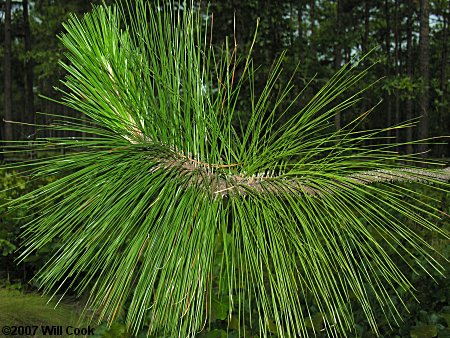
| Longleaf Pine is the characteristic tree of the North Carolina Coastal Plain, particularly the Sandhills region. Most abundant in sandy areas with regular fires, this large, long-lived tree also occurs in a few locations in the Piedmont. It is much less common than formerly, due to fire suppression and being replaced in plantations by faster growing species. The needles, borne in bundles of three, average 12" or so long, much longer than those of Loblolly Pine (P. taeda) or any other species in the eastern US. Moore Co., NC 7/1/07.
|

| The long leaves help protect the apical meristem from the hottest part of the frequent fires that occur (manmade and natural) in its habitat. Moore Co., NC 4/18/10.
|
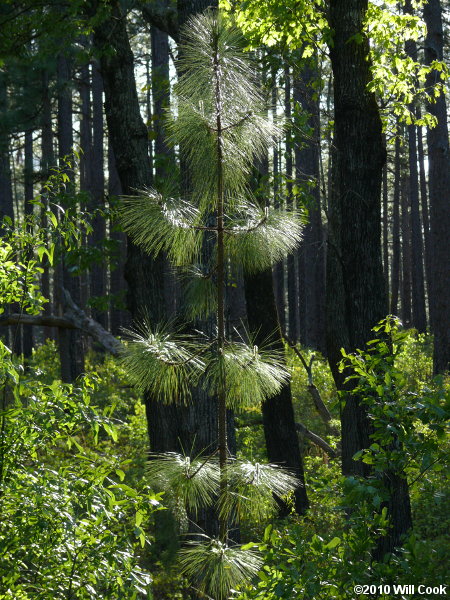
| A youngish Longleaf Pine Moore Co., NC 4/18/10.
|
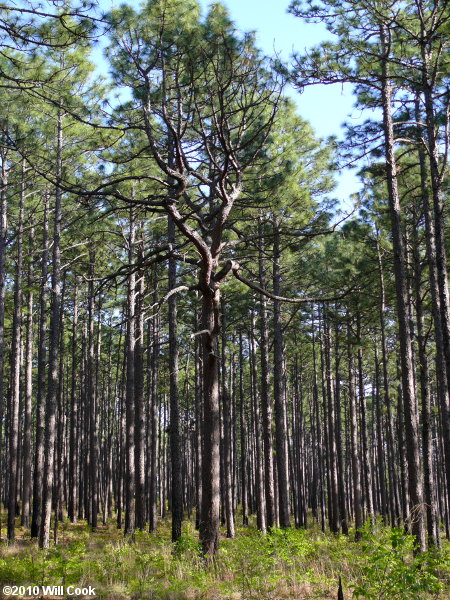
| Very old Longleaf Pines have a gnarled appearance. Weymouth Woods, Moore Co., NC 4/18/10.
|
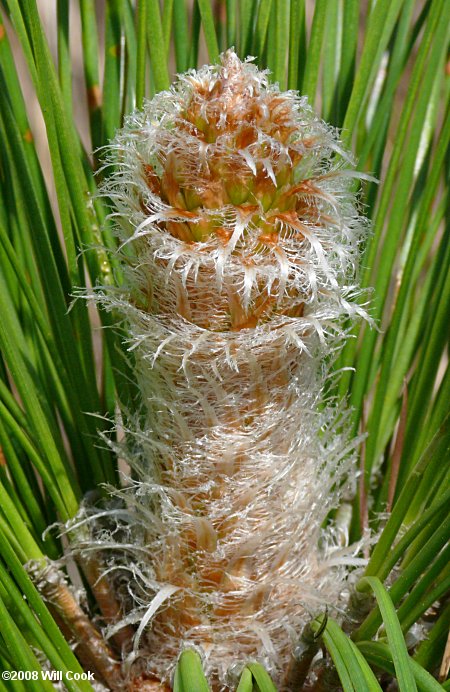
| Detail of the terminal bud of a grass-stage Longleaf. Pender Co., NC 4/19/08.
|

| The photo at left shows a young tree, just emerging from the "grass" stage, with fire-maintained Longleaf Pine savanna in the background. Young seedlings look like clumps of grass and stay in this stage for several years before they bolt. The grass-like leaves help prevent fires from getting hot enough to damage the terminal bud. Carteret Co., NC 8/27/06.
|
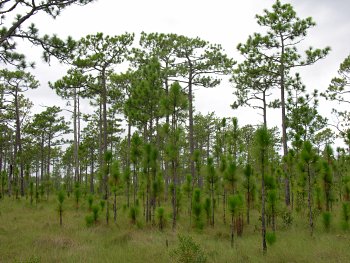
| Another view of the same frequently burned Longleaf Pine savanna. Carteret Co., NC 8/27/06.
|

| This habitat, which is very scarce now because of fire suppression, is dominated by Wiregrass (Aristida stricta), but has a very high diversity of other flowering plants, many of them rare. Despite the name palustris ('swamp' in Latin), Longleaf Pine is not common in swampy areas. Carteret Co., NC 6/23/04.
|
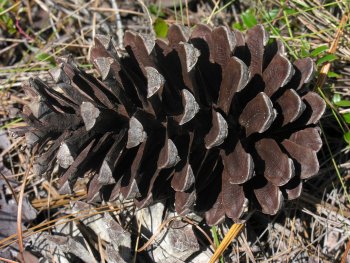
| The cones are much larger than those of other eastern US pine species, averaging about 8" long. Carteret Co., NC 8/27/06.
|

| Note the tiny seedling next to the cone. Moore Co., NC 3/14/07.
|

| Moore Co., NC 3/14/07.
|

| A seedling. The whorl of single needles along the outside are the cotyledons. Moore Co., NC 3/14/07.
|

| The scaly bark of a mature tree is dark gray-brown. Carteret Co., NC 8/27/06.
|
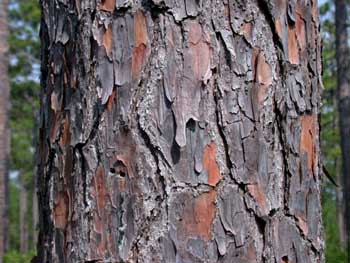
| Scales of old bark shed to reveal reddish-brown younger bark. Carteret Co., NC 6/23/04.
|
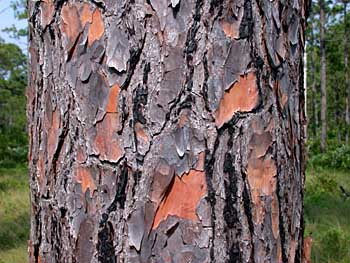
| Carteret Co., NC 6/23/04.
|















